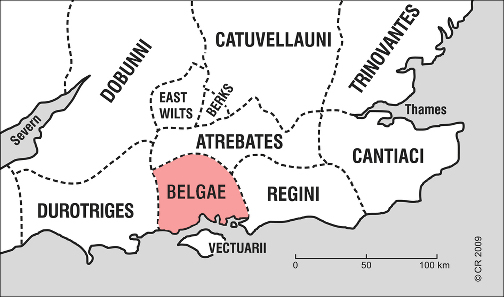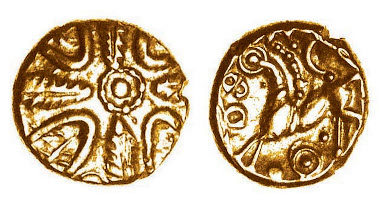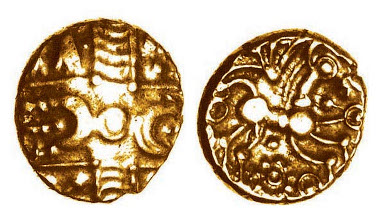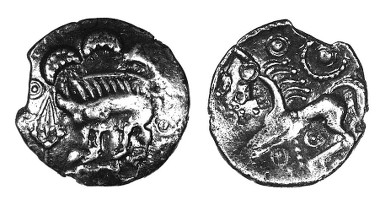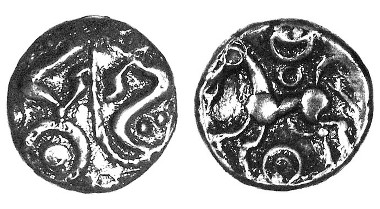by Chris Rudd
April 18, 2013 – Four little coins of the Belgae – each weighing little more than a gram, all excessively rare – will be sold in July. To see one of these rarities in a sale is unusual; to find four is unheard of. Before I tell you what they are, let me say a few words about the people who issued them over 2,000 years ago.
In 1864 Sir John Evans identified the Belgae of Hampshire as possible moneyers. For the next 130 years all major cataloguers ignored them. Numismatically the British Belgae became a forgotten tribe – a tribe that almost died of neglect. Richard Mack didn’t attribute any coins to them, neither did Derek Allen nor Robert Van Arsdell.
Metal detectorists helped to put the Belgae back on the map.
However, thanks to metal detectorists, a lot of previously unpublished coins were found in Hampshire in the 1980s and 90s. In 1997 I began cataloguing these rare new types as ‘Belgae’. Academic eyebrows were raised. One numismatist was so alarmed that he stated publicly that some of the coins I was selling as Belgae could be modern fakes. The Belgae survived this slur.
When Ancient British Coins was published in 2010 no fewer than 84 coin types – 30 gold, 54 silver – were given to the Belgae of Hampshire. Some of these attributions are tentative and some will undoubtedly be revised as new findspots are recorded. Moreover we still aren’t sure how ‘tribal’ the Hampshire Belgae were. A close-knit confederacy? Or a disunited gaggle of disparate pagi? We don’t even know for sure what they called themselves. All we can say for certain is that Romans called their post-conquest capital Venta Belgarum ‘market place of the Belgae’ (modern Winchester). For me that’s a pretty good clue that these guys were Belgae.
Hayling Wreath gold quarter stater, c.50-30 BC, ABC 815. The only other known example is plated.
The four Belgic rarities, to be sold by Chris Rudd in July, are a Hayling Wreath gold quarter stater …
Basingstoke Wreath gold quarter stater, c.50-30 BC, ABC 827. Only one other recorded.
… and a Basingstoke Wreath gold quarter stater, both found in the early 1980s near Danebury Hill, Hampshire; …
Danebury Spear silver unit, c.50-30 BC, ABC 869. Only three others known.
… a Danebury Spear silver unit found near Winchester in 1998; …
Drayton Dragons silver unit, c.50-30 BC, ABC 890. Only three others recorded.
… and a Drayton Dragons silver unit found near Chichester West Sussex, in 2008. I know who discovered them and I know that they are genuine. So, whether scholars like it or not, the Belgae are back and they are here to stay.
For more information on this coins, the auction and the auction house, visit the website of Chris Rudd.
You will find many more articles on Celtic history and coins in our archive section Ancient coinage / Celts.




